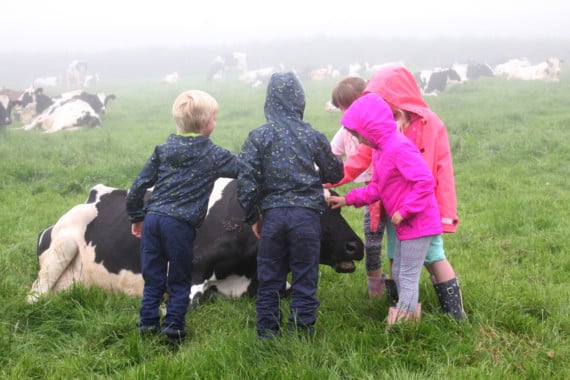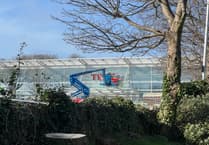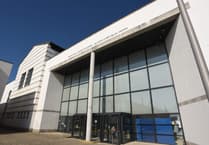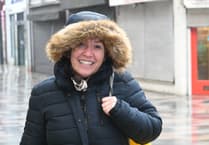A special learning experience was provided to children which gave them an insight into the mechanics used as part of the process of getting milk from a cow into their fridges at home.
Love Tech, a not-for-profit initiative which encourages females of all ages to pursue careers in science, technology, engineering and mathematics (STEM) in the island, organised the event at Ballacricket Farm in Ronague.
Showing the young people around her dairy farm was Vicky Masson, who demonstrated the technology she uses to look after her cattle as well as to supply milk to Isle of Man Creamery.
’Farming is obviously quite a man’s world, but it’s turning around,’ she said.
Having been brought up on a farm, she went on to work in the industry after leaving school at the age of 16.
While learning about the trade, she was often the only woman on the team or courses she took.
’I didn’t think much about it at the time, I just got on with it. Looking back at it now it was quite unusual.
’Women can bring so much to agriculture because they have different ways of thinking and doing things. We can be more compassionate with the animals and with better care of the animals the more profitable it will be.’
She believes women and girls should not shy away from the industry and encourages anyone who believes they can’t get a job in farming because they have no experience in the subject to think twice.
’There are lots of opportunities to get into agriculture. You don’t have to have a background in it,’ she said.
’I think that would be absolutely brilliant if there was an option for a GCSE in agriculture. My son would have taken that.
’There’s an option at A-Level, but that means they have to wait another two years before they go into farming.’
During the Ballacricket Farm visit, children got to use a plate meter, which measures the grass to get an idea of how fast it is growing.
All fields are checked to get an average. If the grass isn’t growing as fast as it should, it indicates to the farmer that food should be imported to the farm to feed the cattle.
The guests were shown inside the milking parlour and looked at clusters, which are attached to the udders of a cow to extract milk.
There are 85 milking cows on Vicky’s farm, all of which have an electrical ID tag that allows them to nip into a feeder programmed to give them a certain amount of food each time so they don’t overfeed themselves.
She also uses an app on her phone to monitor every single cow’s health, quality of produce and reproduction.
’It’s information all in your pocket which makes life easier,’ she said.
’At first when I was approached by Love Tech I didn’t think we used a lot of technology, but I realised we rely on it a lot.
’It was nice to see people are really interested in something you take for granted.
’It’s every day for us so when people come in and say: "Wow, it’s really fascinating! I didn’t realise how much goes into producing milk", it’s really good.
’Some of them had never been on a farm and had some really interesting questions.
’Farming can be really hard work. It’s your own business so there’s no getting away from it. My husband and I never really switch off, it’s a 24/7 job, but there are lots of rewards.
’If I was working a nine-to-five job I would have had the children in nursery. I didn’t have to do that on the farm. They just came along with me which was nice.’




